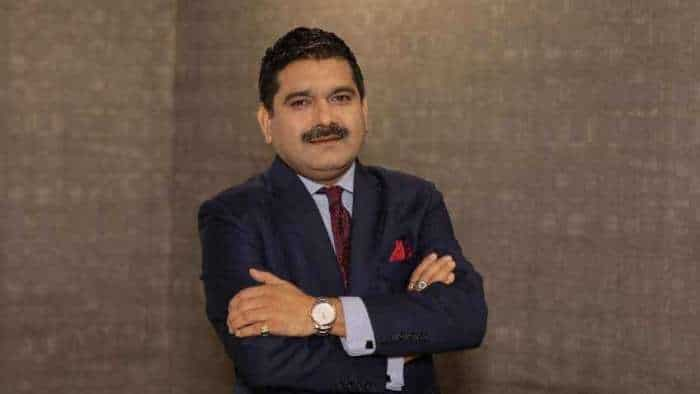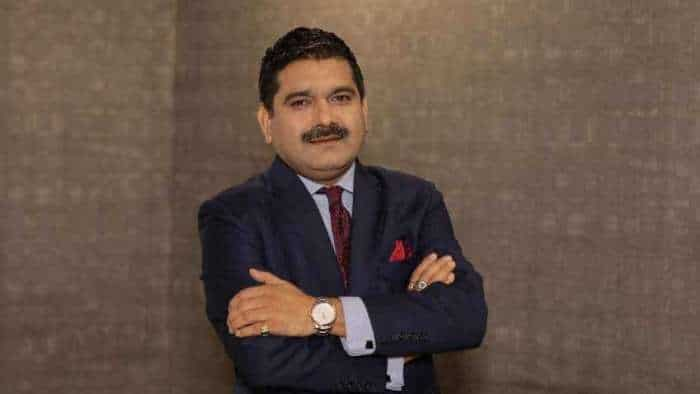Day not far when India will produce semiconductor chips on commercial basis: PM Modi
PM Modi was virtually addressing people after laying the foundation stone of three semiconductor facilities of about Rs1.25 lakh crore, which include two in Gujarat and one in Assam.
)
India will soon start commercial production of semiconductors and related products and become a global power in this sector similar to the technology, nuclear, and digital spaces, said Prime Minister Narendra Modi as he laid foundation stones for three new semiconductor plants in the country on Wednesday."The decisions and policies of today will give us a strategic advantage in future," the Prime Minister said in his virtual address during the foundation laying ceremony.In India's endeavour to ramp up its semiconductor ecosystem, three new chip plants - two in Gujarat and one in Assam are being set up- in addition to the under construction chip plant at Sanand in Gujarat.
Tata Group is setting up two of these three new plants."Today, we are creating history while taking a leap towards a bright future. We have inaugurated three major projects for semiconductor manufacturing in India worth around Rs. 1.25 lakh crore. These projects will help India to become a global hub in semiconductor manufacturing," PM Modi said."Today, the youth are seeing how India is working all-round for progress, for self-reliance and for its presence in the global supply chain. These efforts will also increase their self-confidence and wherever a confident youth is, he or she changes the destiny of the country," the Prime Minister said.He said the 21st century is technology driven and cannot be imagined without electronic chips and noted that the 'Made In India Chip' and 'Designed In India Chip', will take the country towards self-reliance and modernity.
Acknowledging the role of the Covid pandemic in reinforcing the importance of reliable and resilient supply chains, PM Modi said that day is not far when India will become a power in semiconductor space and produce chips on a commercial basis."India is already a tech-space, a nuclear power and a digital power. In the time ahead, we will start commercial production of semiconductors and related products. India will soon become a global power in this sector as well," he said.
As part of its Atmanirbhar and Make in India plan, the government launched production incentive (PLI) schemes in varied sectors, including electronics, to make Indian manufacturers globally competitive, attract investments, enhance exports, integrate India into the global supply chain and reduce dependency on imports. India has lost decades in semiconductor manufacturing and now is the time to move ahead, he said."Due to various reasons, India was left behind during the first and the second industrial revolutions... However, India is pioneering Industry 4.0 with confidence.""The semiconductor industry is not a stand-alone sector. It is allied to many other sectors like transportation and communication.
In the global economy, there is a huge potential for revenue and employment generation from this sector. Chip Manufacturing opens avenues not just for employment, but also for technological advancements."Union Minister for Information and Technology Ashwini Vaishnaw, who participated in the event, said India had been endeavouring to set up a semiconductor ecosystem since 1960s but it is only now that it has earned success. The Union Minister asserted that semiconductors are used in various types of appliances, equipment, cars, mobiles, gadgets, laptops among others. Vaishnaw noted that Made in Assam Made in Gujarat and Made in India semiconductors will be used by companies overseas. Chairman, TATA Sons, Natarajan Chandrasekaran said that semiconductors are a foundational industry for digital products just like steel is for physical infrastructure.
He noted that chip shortages during COVID realised the importance of indigenous manufacturing to fill deficiency, for national security and galvanise indigenous innovation."We will create 50,000 jobs in this journey and this is just the beginning. Today our journey to build semiconductors has begun. For the first time India will have capabilities to solve the chips demand in India," TATA Sons Chairman said. Assam Chief Minister Himanta Biswa Sarma, who was present during the ceremony said that industries in India had never considered the northeast region for businesses during previous industrial revolutions. The region which was neglected in the past was included in the technological revolution by Prime Minister Modi, said Sarma."I never thought Assam would be among the first states to have semiconductor plants. People of Assam will never forget this day and the confidence and trust you reposed on us," he told the prime minister while addressing the event from the plant site in Jagiroad.
Last month, the Union Cabinet chaired by Prime Minister Narendra Modi approved the establishment of three more semiconductor units under ' the Development of Semiconductors and Display Manufacturing Ecosystems in India.
All three units - two in Gujarat and one in Assam -- will start construction within the next 100 days. The semiconductor industry in India is still in a nascent stage, with various local and multinational companies intending to tap its vast potential. The Programme for Development of Semiconductors and Display Manufacturing Ecosystem in India was notified on December 21, 2021, with a total outlay of Rs. 76,000 crore.
The approved three semiconductor units for which foundation stones are laid today are: Tata Electronics Private Limited ("TEPL") will set up a semiconductor fab in partnership with Powerchip Semiconductor Manufacturing Corp (PSMC), Taiwan, in Dholera, Gujarat. Investment in this fab will be Rs 91,000 crore. PSMC has 6 semiconductor foundries in Taiwan. The capacity of the Dholera unit will be 50,000 wafer starts per month (WSPM).CG Power, in partnership with Renesas Electronics Corporation, Japan and Stars Microelectronics, Thailand will set up a semiconductor unit in Sanand, Gujarat.
This unit will be set up with an investment of Rs 7,600 crore. The CG power semiconductor unit will manufacture chips for consumer, industrial, automotive and power applications.Tata Semiconductor Assembly and Test Pvt Ltd ("TSAT") will set up a semiconductor unit in Morigaon, Assam. With a capacity of producing 48 million chips per day, this facility is being built at a cost of Rs 27,000 crore. Segments that will be covered are automotive, electric vehicles, consumer electronics, telecom, and mobile phones. These units will generate direct employment of 20 thousand advanced technology jobs and about 60 thousand indirect jobs.
These units will accelerate employment creation in downstream automotive, electronics manufacturing, telecom manufacturing, industrial manufacturing, and other semiconductor-consuming industries. Meanwhile, American chip maker Micron's high-end semiconductor fabrication plant at Gujarat's Sanand, which is India's first, is coming into reality at a rapid pace. It is expected to be operational in late 2024. Micron Technology is investing USD 2.5 billion (INR 22,500 crore) to establish an ATMP (assembly, test, marking, and packaging) facility in Gujarat's Sanand GIDC-II. Sanand GIDC is a highly industrialized zone in Gujarat, home to many national and multinational manufacturing industries. (ANI)
Get Latest Business News, Stock Market Updates and Videos; Check your tax outgo through Income Tax Calculator and save money through our Personal Finance coverage. Check Business Breaking News Live on Zee Business Twitter and Facebook. Subscribe on YouTube.
RECOMMENDED STORIES

PPF vs SIP: Rs 12,000 monthly investment for 30 years; see which can create higher retirement corpus

SIP in Stocks For New Year 2025: Market guru Anil Singhvi recommends 1 largecap, 2 midcap scrips to buy in dips; note down targets

Power of Rs 15,000 SIP: How long it will take to achieve Rs 7 crore corpus? See calculations to know

Largecap, Midcap Stocks To Buy: Analysts recommend buying L&T, Tata Motors, 3 other stocks for 2 weeks; check targets
12:54 PM IST










 Government discussing scheme for 'made in India' label
Government discussing scheme for 'made in India' label  PM Modi wants to see one Indian product on every dining table in the world
PM Modi wants to see one Indian product on every dining table in the world Vivo India to ship over 1 million 'Made in India' smartphones in 2023 under 'Atmanirbhar Bharat' initiative
Vivo India to ship over 1 million 'Made in India' smartphones in 2023 under 'Atmanirbhar Bharat' initiative EXCLUSIVE: South Asia's 1st 'Made In India Surgical Robot For The World' Is Here - Now, This Indian Medtech Startup Is There On NASDAQ
EXCLUSIVE: South Asia's 1st 'Made In India Surgical Robot For The World' Is Here - Now, This Indian Medtech Startup Is There On NASDAQ Prachand: First Made In India Light Combat Helicopter inducted into IAF
Prachand: First Made In India Light Combat Helicopter inducted into IAF